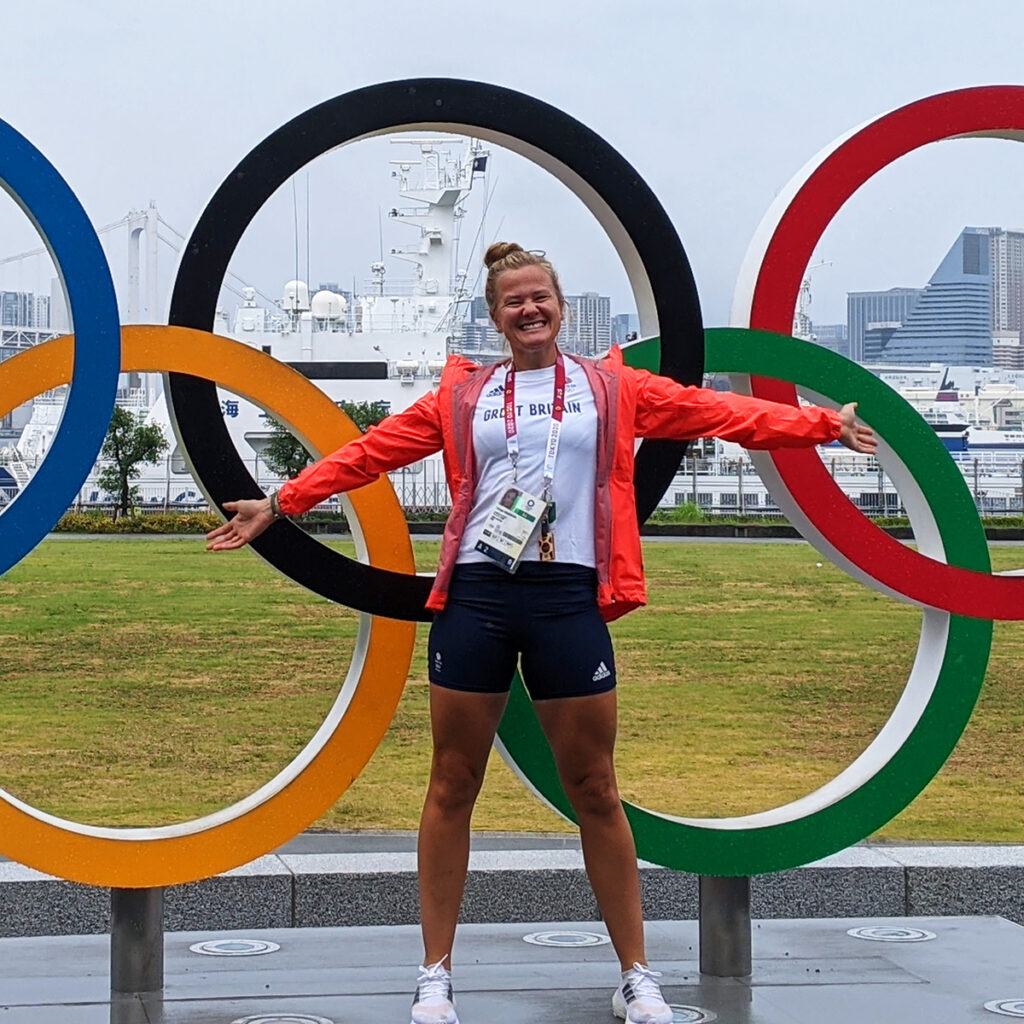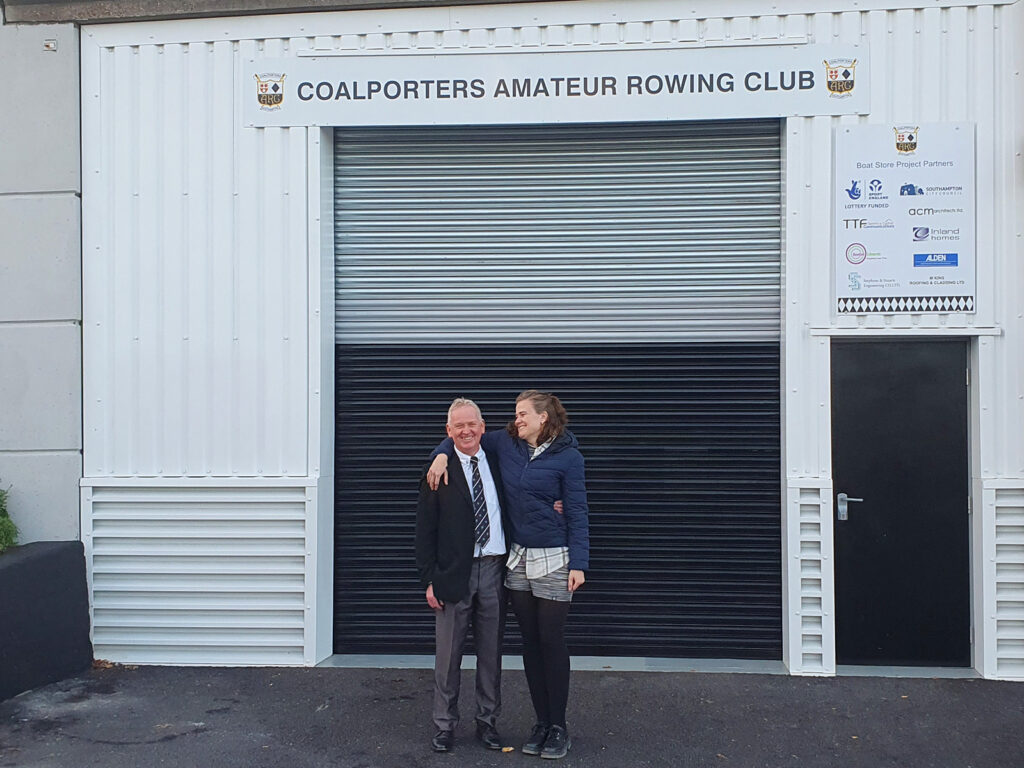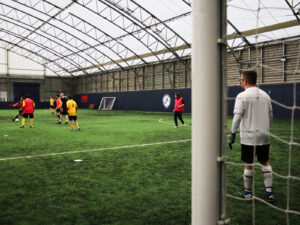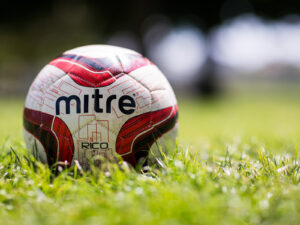Caragh McMurtry: Create enabling environments

Retirement can be a very difficult and scary thing for athletes who have dedicated their lives to excel in their discipline, while for Caragh McMurtry, leaving professional sport has felt largely refreshing.
The former Team GB rower stopped training at the start of last summer due to an injury and officially departed from the national programme in December, more than a decade since she first pulled on a British jersey and won a silver medal at the 2009 Junior World Championships.
During that time, Caragh was misdiagnosed with bipolar disorder and was taking wellbeing-suppressing medication which impacted her training through illness, injury, and exhaustion, only to be re-diagnosed with autism five years later in 2019.
At that point, on the fringes of the national team, Caragh then turned it all around and booked her spot in the Olympic team that went to Tokyo.
Having reached the pinnacle of her profession, retirement has given her the opportunity to find out the best version of herself. Caragh has also dedicated much of her time to raising awareness of neurodiversity in sport so that future talents reach their full potential.

“It was really the time where I got to know myself for the first time with the knowledge that I was different for a reason and that was okay,” she said. “I didn’t have to keep trying to be someone else, or do mental gymnastics because I was constantly being told that I wasn’t good enough for reasons that I didn’t quite understand.
“I’ve never been as happy and as productive as I have been in this last year. That’s because I’ve given myself permission to be different and there’s nobody else telling me that it’s wrong.
“I still exercise religiously because I need it and it’s one of my management tools; it helps me manage my energy and my emotions. I’m super fit at the moment because I’m not spending inordinate amounts of energy masking or beating myself up.
“Actually, being able to express yourself in the way that suits you most and being accepted for that, and learning and communicating in the way that suits you, it completely revolutionises what you can get out of yourself and how you experience life.
“It makes me even sadder that so many people don’t get to do that because of societal expectations, but it also gives me more drive that I already had with what I’m doing and also to endorse sport charities and organisations like Spautism. They are growing, and to me it’s a no-brainer.”
Caragh’s mission to raise awareness involved starting Neurodiverse Sport, a platform celebrating dyspraxia, dyslexia, ADHD, autism – different ways of doing things – and using her own experiences to provide insight into training athletes with autism at high-performance level.
She has since received messages from people around the world, be they grassroots participants looking up to her, or professional athletes who are glad to see a fellow elite performer who is neurodivergent make their way to the top of their sport.
For Caragh, her journey from novice to Olympian started with the same values that she is advocating for today.
“Volunteers will do anything to enable you, because a volunteer wouldn’t be volunteering if they were only doing it for themselves and not anyone else, but I felt at the higher level it was more about a coach’s philosophy and the focus was away from the individual and their needs.
“Southampton Coalporters ARC [Caragh’s first rowing club] were a second family to me. It baffles me the way certain people, volunteers, are prepared to go out of their way to help a stranger; a kid at a rowing outreach programme is effectively a stranger until you get to know them.
“A lot of sports clubs are run by volunteers and looking back I have even more respect and appreciation for them. The impact they had on my life is huge; they took their time on the weekends to coach us and I wasn’t necessarily that well behaved most of the time – I’d chat back, ask loads of questions, argue, have frustration – but they had patience and saw it as endearing, and I didn’t have any opportunities taken away. It was all in good faith.
“Volunteers would take me to events, like Nick Chmarny who took me to spring assessments and junior trials just because he’s a nice guy, nothing more than that. It’s incredible.”

Since starting sport, Caragh has never been apart from it and exercise continues to be a daily part of her life because she’s found it’s more than just physical fitness, enjoyment, or competing to win.
There are wellbeing benefits which she believes will be advantageous to lots of people.
“My mind never stops working so if somebody tells me to do mindfulness, there’s no point in trying. I’ll be the person in the room who’s got one eye open just looking at what other people are doing, or thinking about not thinking.
“Sport allows me to change the track – it’s a practical mindfulness. I come away feeling the way someone might feel after yoga or something relaxing; it clears my mind like I’ve had a mental decompression.
“With something like rowing or sports that are quite repetitive you get into a zone and your mind relaxes; you are doing something in the background but you are relaxing at the same time and that’s really important.
“School and social situations are too pressurised to risk getting things wrong, whereas sport is a safe and structured environment in which you can try things out, even social cues, styles of communication, or ways of learning.
“Obviously with that, you need to have coaches who are educated and understanding that some people learn differently.”
This is where the education is important. Raising awareness of autism and exposing sports organisations – coaches, participants, staff – to autism training will help them create environments that will keep people with autism in sport, and potentially unearth a future world champion.
“At least 15 per cent of the population are neurodivergent, so a lot of people who are neurodivergent will be in sport and currently masking themselves.
“Neurodivergence isn’t a disability, but environments can be disabling. It’s getting people to understand that people who are neurodivergent have different neurology and behavioural traits and if they were put in their optimum environment, they would be fully enabled and be able to thrive.
“Neurodivergence isn’t a mental health issue and it’s not helpful to have them associated with each other – it just adds to stigma. Neurodivergent people may be more prone to mental health issues, maybe because they have to live in a world that caters for the masses.
“Why wouldn’t coaches want to enable people in their team? Whether it’s about performance or participation, enabling people will allow them to be better players, better team-mates and give more for coaches and the club.
“Whatever level of sport, there will be people with dyslexia, dyspraxia, ADHD, autism; it’s not scary, it’s just a different way of thinking and a different way of behaving and the reason people can’t see it is because they’re hiding it.”
Please get in touch with us to see how we can improve autism awareness among your sports organisation’s staff and coaches.
Despite the barriers Caragh faced in her rowing career, she still pushed through to become an Olympian – and she’s certainly not the only person with autism to succeed in sport.
“I’d love people to have a look at what are the possible strengths of neurodivergence and they will be really surprised because at the moment perceptions are very negative. Just let them be themselves and you’ll be surprised at the incredible things they could add.
“If you want to get the best out of every individual you can’t have a blanket rule as everyone’s neurology is different. But what you can have is a blanket set of principles or an approach, educating coaches and managers on how to get the best out of people, how to have conversations in a way that puts people at ease, and how to implement any of the things they might need.
“This comes from coaches being curious, and understanding, empathy, and open-mindedness to different ways of doing things will enable many more people than just those who are in need of support – it will positively impact everyone.”


